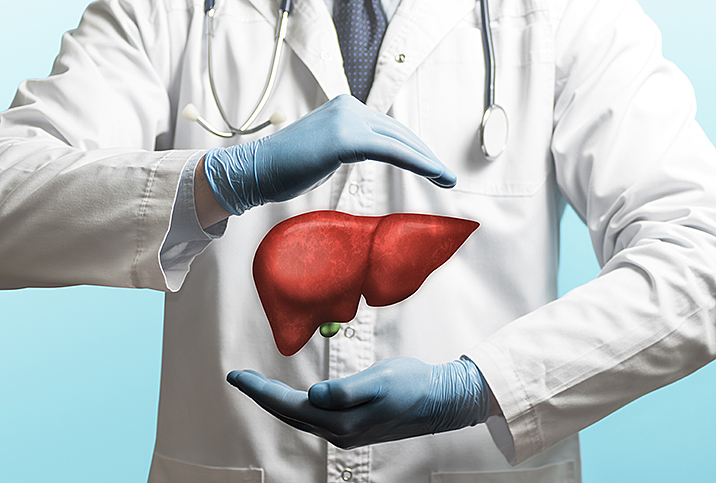5 'Other' Organs That Can Affect Your Sexual Function

Erectile dysfunction (ED) can stem from a wide variety of complications that include stress, physical illness, medication and performance anxiety. ED is often a symptom of a separate health-related factor or condition.
Since the penis's erectile function is controlled by testosterone production and the brain, experiencing ED as the side effect of another organ's malfunction is common. Contributing factors to the development of ED include issues with the nervous system, the vascular system and the endocrine system.
Diseases and medical conditions such as high blood pressure, heart and blood vessel disease, type 2 diabetes, atherosclerosis, multiple sclerosis, Peyronie's disease and chronic kidney disease can also cause ED. Injury to the penis, prostate, bladder, pelvis or spinal cord are other factors, along with surgery for bladder cancer, injury from prostate cancer treatments and prostate surgery.
Aging can also increase the chances of developing ED. Furthermore, medications that may have the side effect of ED include:
- Antidepressants
- Blood pressure medicines
- Antiandrogens (used for prostate cancer therapy)
- Tranquilizers
- Prescription sedatives
- Ulcer medicines
- Appetite suppressants
So, in a nutshell, ED has a plethora of potential causes. Five organs, in particular, may sit atop the list if they're not working properly:
1. Kidneys
Diminished kidney function is linked to ED in a few ways, according to Denise Asafu-Adjei, M.D., an assistant professor of urology and the medical director of male reproductive medicine at Loyola University Chicago Stritch School of Medicine.
"Kidneys help to control blood pressure," Asafu-Adjei said. "Uncontrolled blood pressure negatively affects blood vessels, which impacts the arteries, including those that supply the penis. Additionally, kidney disease is associated with lower levels of testosterone, which also negatively impacts erectile function."
Issues with sexual activity and function are common among men with chronic kidney disease, affecting up to 70 percent of patients with end-stage renal disease, according to a 2015 study published in the World Journal of Nephrology.
2. Liver
The liver plays a vital role in how the body processes testosterone by making essential molecules, Asafu-Adjei explained.
"[Testosterone is] a hormone important for sexual drive and function," she said. "The most pertinent of these molecules [made by the liver] is serum hormone-binding globulin, which controls how much testosterone is available for the body to use. In liver disease, SHBG levels are typically elevated and reduce the amount of available testosterone, leading to erectile and sexual dysfunction."
Research from 2018 on the prevalence of ED in patients with chronic liver disease related to hepatitis B or C was revealing. It indicated that 76.4 percent of the participants were also diagnosed with ED.
3. Thyroid
An underactive (hypothyroidism) or overactive (hyperthyroidism) thyroid can affect how your penis functions as well.
"Thyroid dysfunction can contribute to erectile dysfunction, as both hypothyroidism and hyperthyroidism can be associated with ED symptoms," said Jeremy Choy, M.D., an endocrinologist and acting assistant professor of medicine in the urology department at the University of Washington School of Medicine in Seattle.
Once patients receive treatment for their underlying thyroid disease, however, ED symptoms can improve, Choy added.
The prevalence of sexual behaviors in men with thyroid issues was the focus of a multicenter study published in 2005 in the Journal of Clinical Endocrinology and Metabolism. Researchers found patients with hypothyroidism were more likely to have ED (64.3 percent) than those with hyperthyroidism (14.7 percent).
Two to four months after the participants' thyroid hormone levels were normalized, ED symptoms significantly decreased in both groups, and "almost disappeared" among the hypothyroidism sufferers, according to the study.
4. Pancreas
The pancreas is responsible for producing insulin and glucagon. People with type 2 diabetes build up insulin resistance, which requires the pancreas to create more insulin to help lower blood glucose levels. When the organ is unable to meet the body's needs for insulin production, diabetes symptoms appear.
Men living with diabetes can develop ED 10 to 15 years earlier than those with healthy blood sugar regulation. They're also two to three times more likely to experience ED than men without diabetes, according to the National Institute of Diabetes and Digestive and Kidney Diseases.
ED symptoms caused by circulation problems and nerve damage can be prevented or treated through effective diabetes management. For additional support, doctors can prescribe medicine or change the patient's diabetes care plan.
5. Testicles
Testosterone is essential for promoting healthy sexual and erectile function and is made primarily in the testicles. The adrenal glands produce a small amount.
"Any condition, such as trauma, infections or even cancer, can adversely affect the testicles, testosterone levels and erectile function," Asafu-Adjei said.
"As the testicles are a man's primary source of testosterone production, testicular dysfunction can give rise to erectile dysfunction," Choy added. "In patients who are testosterone-deficient, testosterone replacement can sometimes help with these symptoms."
Some ED sufferers should know, however, there is good news. If their condition is tied to the dysfunction of another organ, sexual health can improve once the condition is treated.
And if men are concerned about any other type of sexual dysfunction, such as a lack of sexual desire or premature ejaculation, visiting a healthcare professional is the best first step.


















